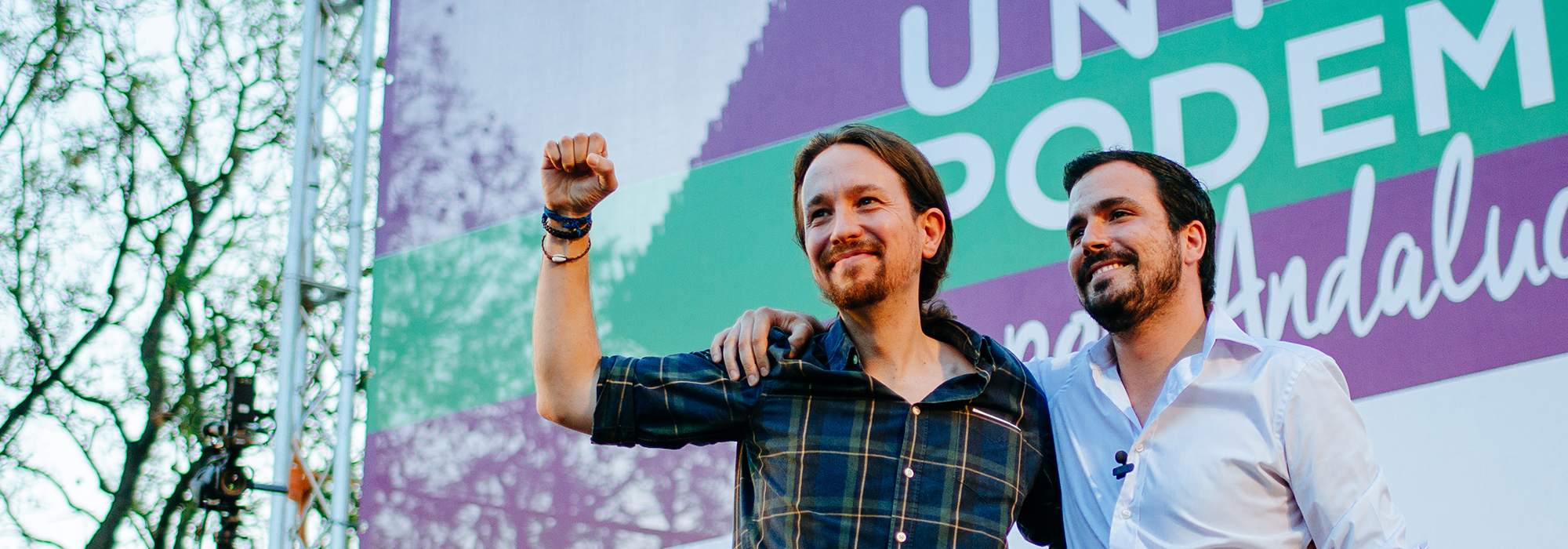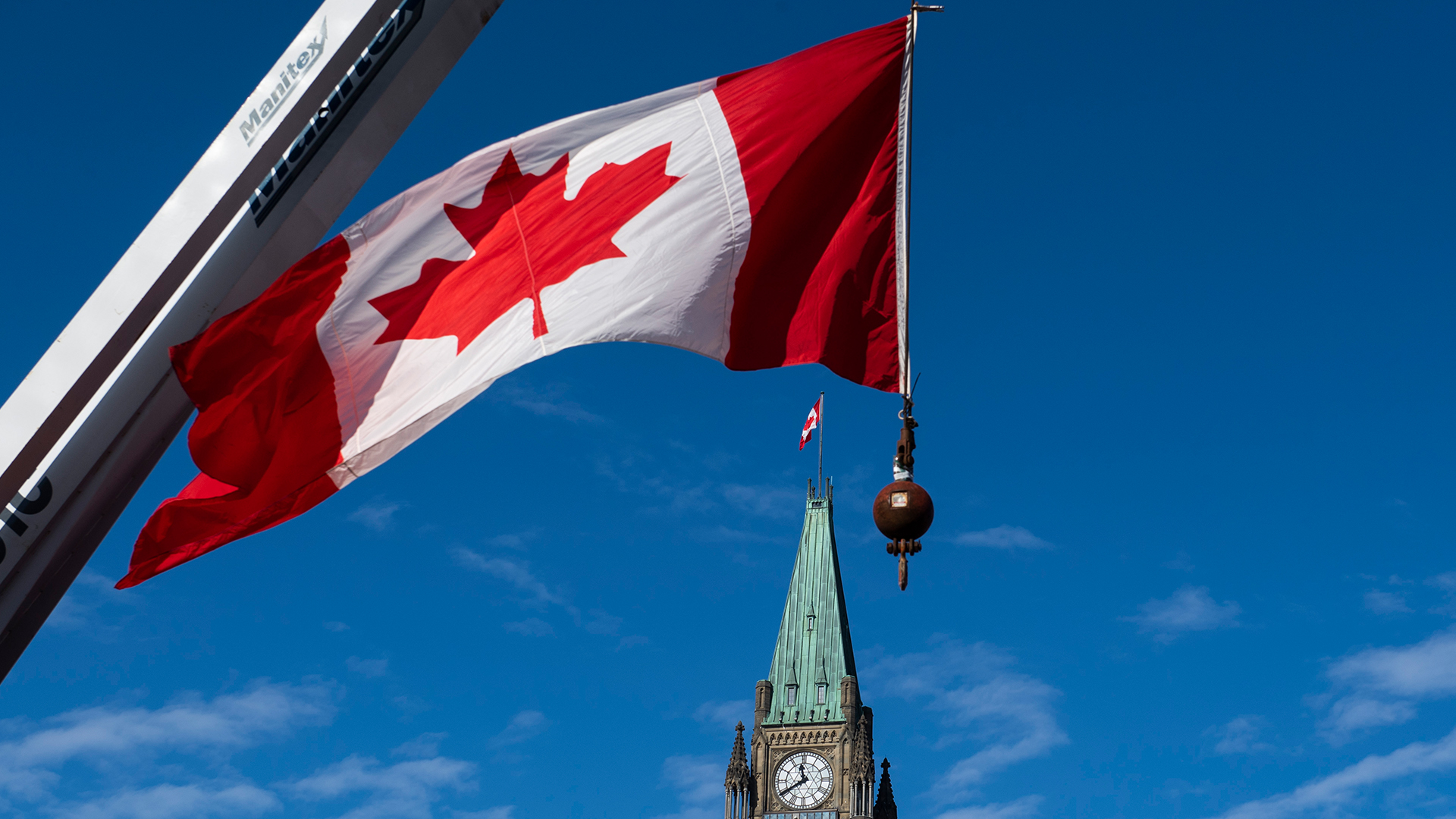
As the race to replace Thomas Mulcair as leader of the New Democratic Party (NDP) begins to heat up, it is clear that the international points of reference used to think about the candidates have shifted since the last leadership contest in 2012. One such point of reference is the increased talk of populism. On the one hand, Donald Trump and other right-wing populists loom large as figures of opposition in the NDP leadership race. On the other hand, the notion of finding a Canadian Bernie Sanders has been floated in and around NDP circles.
The fact that populism can be associated with both the Right and the Left, and can encompass political actors who are either figures of rejection or emulation by NDP candidates suggests that it is an ambiguous concept. Therefore, some analysis might be of use in order to start evaluating the possible or existing populist dynamics within the NDP leadership race.
What is populism?
The growing awareness of populism has been buoyed by the resurgence of populist political movements in Latin America, Europe, and more recently in the United States. This development has largely been read as a symptom of a broader crisis of liberal democracy brought on by neoliberal economic reforms and crises that have fuelled disenchantment with political institutions.
There are two broad schools of thought on populism. A first approach is more critical and is exemplified in the work of authors such as Kurt Weyland, who see populism as being antithetical to liberal democracy. The direct and often demagogic relationship that populist leaders maintain with their support bases is thought to undermine other institutions and processes, such as political parties, presumed to be essential components of liberal democracy. This school of thought emphasizes that populist leaders tend to centralize and personalize power in a way that leads to political polarization, corruption, economic mismanagement, and authoritarianism.
The second school of thought is much more ambivalent about the democratic nature of populism and might be more useful for thinking about the NDP leadership race. Ernesto Laclau, in his book On Populist Reason, argues that in order to properly understand populism, one must not approach it as a suite of ideologically coherent policies, but rather as a political logic. As such, it can have a right-wing or a left-wing orientation. The populist logic is, therefore, ideologically promiscuous and so political actors that employ it are more difficult to slot onto the political spectrum. Contrary to the more critical approach outlined above, populism from this perspective is not thought to be inherently anti-democratic and can, in fact, expand and radicalize democracy by mobilizing marginalized sectors of society.
The political logic of populism, according to Laclau, finds its starting point in the groups who feel they are invisible or excluded from power. These different excluded groups of people can be mobilized and brought together, lending their different grievances and demands a common status. Essential to this process of unification is the rallying under an “empty signifier” or slogan such as the “99% vs. the 1%.” The empty signifier essentially becomes the symbolic shortcut or rallying point that expresses the unity that has been created between the different groups.
Now, Laclau insists that the populist logic is not only about uniting disparate marginalized social categories, but also about mobilizing against a privileged minority. There is an essential antagonistic relationship within this process, as marginalized groups views themselves as the “people” vis-à-vis the illegitimate elite that is the cause of their marginalization. They insist on their visibility and agency within an order premised on their invisibility and powerlessness. The populist logic involves, accordingly, a simultaneous movement of unification, antagonism, and rupture.
Four questions for the NDP and the Canadian Left
This conceptualization of populism may seem somewhat alien to contemporary Canadian politics with the predominance of two, elite-driven, catch all political parties. Indeed, the concept has largely been developed with countries in mind that are very different from Canada. Populism is more widely discussed in Latin America and Europe. The Brexit vote and the last United States (US) presidential election, however, has brought the concept back closer to our shores and has come to figure more prominently in our political vernacular. As a result of the growing number of references to populism within the context of the NDP leadership race; the candidates, party members, and the wider Canadian Left might consider these questions.
- Is the current political situation conducive to the emergence of a left populism in Canada?
Populism can theoretically take root anywhere and at any time. Nevertheless, populist movements tend to find success where there is widespread disenchantment with established political parties and institutions
Therefore, it is important to ask whether there is enough widespread disenchantment with Canada’s political system as a whole for a Left populist candidate to emerge. Yes, candidates, in the Conservative Party of Canada’s (CPC) leadership race are touching on populist themes. Even so, they have had variable degrees of success and there is no guarantee that a populist candidate will emerge victorious from their ranks. More importantly, even though the governing Liberals have seen a recent decline in their support, polls indicate that their current level of support would land them in majority government territory come election time.
This does not mean that the underlying structural factors conducive to a populist revolt are not in place, nor does it mean that a populist left-wing populist campaign if executed effectively could not be successful. However, it does mean that if Liberal support does not significantly implode over the next few years, a populist campaign would have to deal with a resilient establishment party.
- Are any of the NDP candidates willing to articulate a populist campaign?
There is no doubt that many of the NDP leadership candidates are touching upon populist themes. For example, Charlie Angus put his own spin on a classic populist trope when he explained that he is neither Right nor Left, but rather “punk rock.” Meanwhile, Peter Julian has explained that he wants to reduce the gap between the “elites” and “regular folks.” However, there is a difference between touching upon populist themes and running a campaign directed by a populist logic.
An essential component of populist logic is organizing a campaign that is explicitly antagonistic toward elites. A populist campaign is not only about bringing different groups together into an electoral coalition, it is also about mobilizing them against an opponent. For example, there is a difference between wanting to reduce inequality, and naming and mobilizing against the actors that are responsible for that inequality such as “Bay Street.” Niki Ashton`s campaign has perhaps come the closest to approximating this antagonistic dynamic by making references to challenging the power of Canada`s elites.
Still, the populist logic is also about rupture as it seeks to challenge and transform powerful political symbols and institutions. That being said, yes, the leadership candidates have pointed to changes they would like to make with regard to specific policies and institutions, but this is very different from running against the political system as a whole. Bernie Sanders, it is important to remember, frequently referred to his campaign as being part of a political revolution. Thus, in order to properly engage a populist logic, the candidates have to decide whether they are not only willing to run against the elites and other political parties, but also the entirety of the Canadian political system.
- Would the NDP accept a Populist Leader?
To state the obvious, a political party is much more than its leader. A party’s administration, its parliamentary caucus, and influential party stalwarts and stakeholders can all have an impact on a candidate’s ability to win a leadership campaign and, in the event that they win, to run the campaign that they want during a general election. The difficult relationship between the Bernie Sanders campaign and the Democratic National Convention during last year’s primary races in the US illustrated what can happen when a party’s establishment opposes a candidate.
This raises the question of whether the NDP establishment would accept and support a populist candidate. Recent NDP campaigns at both the provincial and federal levels have attempted to normalize the NDP’s image to position it within Canada’s political mainstream. While the adoption of the resolution to debate the Leap Manifesto at the 2016 party convention indicated that segments of the NDP membership base may be looking for something more radical, the reception from the party establishment has been lukewarm. It would be safe to say that a populist campaign would break with recent party campaigning and governance practices, and would certainly make a lot of influential figures within the party very uncomfortable.
- Is populism a desirable political strategy for the NDP and/or the wider Canadian Left?
As many have commented, it is apparent that internationally the Left is in crisis as a result of the generally poor electoral results of labour, social democratic, and socialist parties. Moreover, to make matters worse, the crisis is also ideological as Left parties throughout the world have struggled to develop programs that have evolved beyond the Keynesian welfare state policies that were prominent during the postwar era and are also significantly different from the neoliberal policies on offer from centrist and conservative parties.
In view of this, the Left has achieved electoral growth where it has engaged a populist logic, even if it has not always led to electoral victories. For example, the so-called Pink Tide that took place in Latin America during the early 2000s saw the election of several left-wing governments that engaged aspects of the populist logic. Meanwhile, Left populist political movements in Europe, such as Podemos in Spain, have become increasingly influential even where they have not managed to form government. One of the potential advantages of employing a populist logic is that it does not just attract one segment of society, such as the working class. It can bring together a coalition of disparate social groups that may feel excluded from a political system.
Nevertheless, these electoral gains have often been accomplished at the cost of ideological coherence. Deploying the populist logic does not require that its authors articulate a systematic critique of the structural factors that may marginalize the different segments of society that may be drawn to it. For example, an empty signifier such as the 99% vs. 1%, in its simplicity, may appeal to and bring together multiple segments of society that are concerned by wealth inequality, but it by no means provides a coherent explanation of how this inequality came to be.
It should not be a surprise, therefore, that a common critique of Left populist politics is that it often lacks ideological substance and a coherent policy framework. The absence of ideological coherence is not necessarily a bad thing in a campaign, but it can become a liability when a populist political party/candidate manages to win and form a government. When it comes to governing, the populist logic provides no blueprint on what policies to implement, let alone how to go about implementing them.
Therefore, while employing the populist logic may provide some short-term answers for the NDP’s electoral problems if it were to choose that path, the party would still face the daunting task of generating coherent policies that would allow them to fulfill their promises to the public.
Photo: Jerez De La Frontera, Spain — Pablo Iglesias (Podemos) and Alberto Garzon (Izquierda Unida) in a rally of Unidos Podemos on Jun 23, 2016.
Do you have something to say about the article you just read? Be part of the Policy Options discussion, and send in your own submission. Here is a link on how to do it. | Souhaitez-vous réagir à cet article ? Joignez-vous aux débats d’Options politiques et soumettez-nous votre texte en suivant ces directives.








